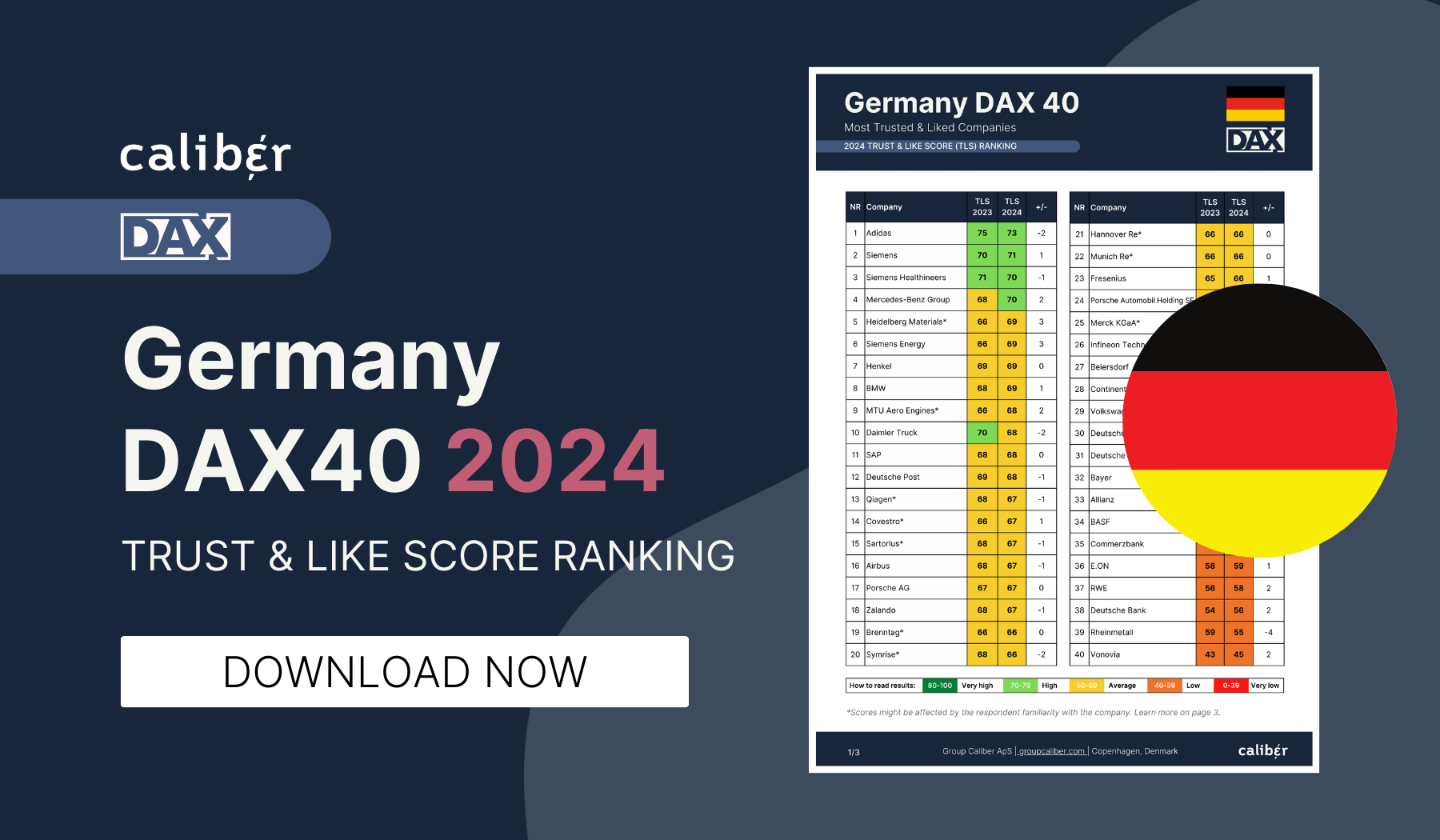
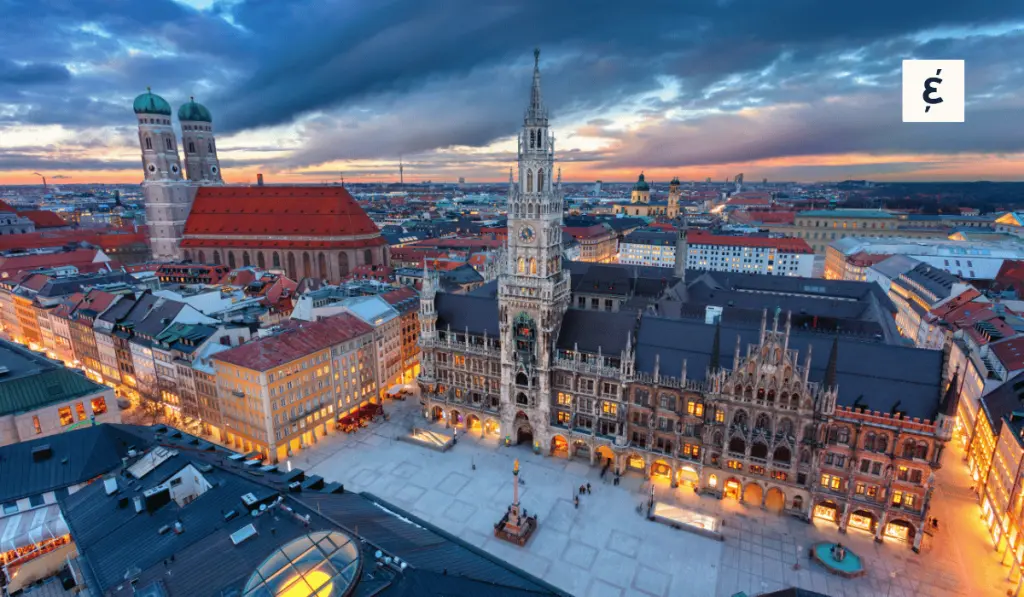
Those who have been following our reputation rankings of the DAX 30 companies over the last few years have probably gotten used to the fact that some things do not change – for example, seeing Adidas and Siemens ranked in the top 3 or Deutsche Bank and Volkswagen Group in the bottom 3.
Well, we are happy to say that this time it’s different. The 2020 ranking not only showed interesting changes in the top- and bottom-ranking companies but throughout the entire list (and that’s without even mentioning the commercial and reputational disintegration of Wirecard).
Adidas does maintain its position as the DAX 30 company that is most trusted and liked by the German public in 2020 – but its score declined last year, slipping below the 70-point threshold for the first time.
This could very well be connected to the media and political storm surrounding the company’s announcement in the early days of the pandemic that it was freezing rent payments in response to the crisis.
On the flip side, we have a new entry to the top 3 in the form of Munich Re, which continues its remarkable reputational journey to become Germany’s second most reputable company, having been ranked as low as number 17 only two years ago.
Another remarkable journey is underway at Volkswagen Group, which leaped by 3.5 points (the second-highest score climb in 2020) out of the bottom 3 to reach the rank of 25. This position may still be low, but it demonstrates an impressive improvement considering the lingering impact of Dieselgate on its domestic reputation.
The most impressive rise in reputation score is shown by Deutsche Telekom – the biggest climber in the DAX 30 list this past year. Like other telecom companies, Deutsche Telekom has had its fair share of scrutiny impacting its reputation over the years, but the merger with Sprint in April 2020 appears to have boosted its reputational fortunes on top of its financial ones.
When it comes to less fortunate reputational journeys, the chemicals group Linde drops from its top-3 position in 2019 with a decline in its Trust & Like Score of 4 points – the largest drop in the list in 2020.
A similar decline was experienced by BMW, in this case coming on the heels of another significant decline in 2019. This suggests a continuing downward trend in the image of the prestigious automaker, which replaced its CEO in 2019 in a move seen by some as meant to reinvigorate a brand that might be growing a bit complacent. It is probably also connected to the general shakeup of the auto industry in Germany with the emergence of electric vehicles, further exacerbated as a result of the pandemic.
One of the many debates surrounding Covid-19 last year – and there were indeed many – was the one concerning the reputational impact of the pandemic on companies and sectors around the world. This is of course something we have kept a keen eye on throughout 2020 and still do, and we have written before about some of our findings on the early implications the pandemic has had on public perceptions of large businesses.
We know, for example, that the Pharma sector has experienced a major reputational boost throughout the pandemic, which could explain the rise in scores for Merck and Fresenius Medical Care in Germany.
We also know that the banking sector worldwide has been negatively impacted by the Coronavirus, which perhaps contributed to the score drop of Deutsche Bank in 2020. But it is interesting to delve deeper into the overall impact in Germany and elsewhere, given the different ways the pandemic has been handled across countries.
The simplest way for us to see the impact throughout 2020 – ignoring the many fluctuations that happened month by month during this volatile period – is to compare the average scores given by the public to all companies monitored in each county in the first ten weeks of the year, with the corresponding scores given in the last ten weeks. That comparison has indeed shown an interesting relationship between how countries experienced the pandemic in general and what the reputational impact has been in each country.
Countries like the US, Brazil, and Italy, which have all been ravaged by the pandemic last year, have also seen the greatest reputational drops with average score changes of between 4 and 7 points. On the other hand, Sweden is positioned at the top of the table as the country whose companies experienced the greatest overall reputational boost throughout the year. This may have something to do with the unique way the country has tackled the crisis.
Germany is also placed in a good position as one of the countries where average reputation scores have changed positively, though to a more moderate degree than Sweden.
This could mean two things:
Most likely, it’s a combination of both.
What is interesting about Germany is that despite the minor difference in average scores between the start of 2020 and the end of the year, individual company scores have actually moved significantly.
This suggests that in Germany, reputational fortunes in 2020 were driven less by big events like the pandemic and more by the actions and performance of individual companies. In that sense, the German public seems to be discerning, judging each company on its own behavior, in a way making reputations in this market more deserved.

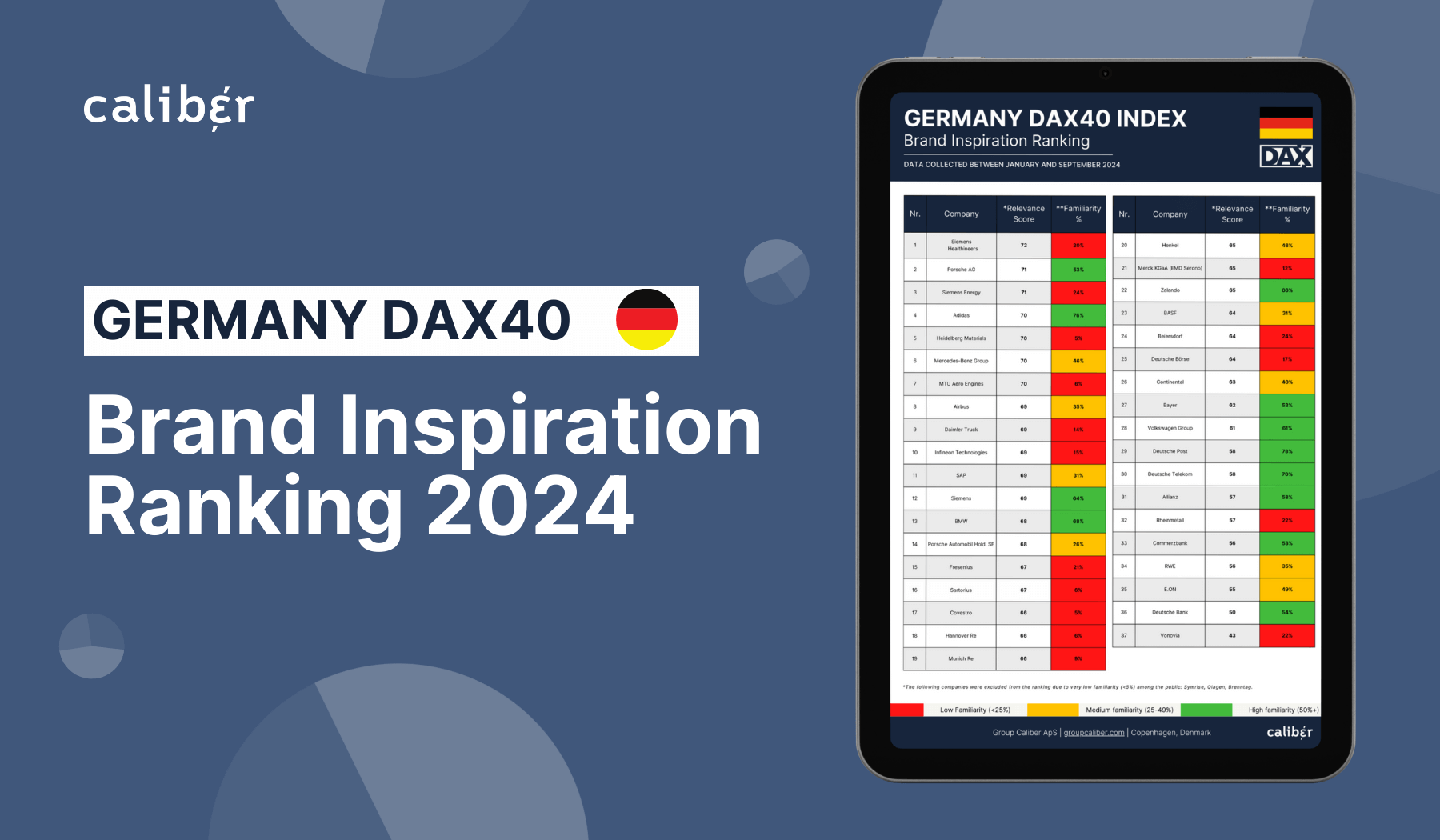
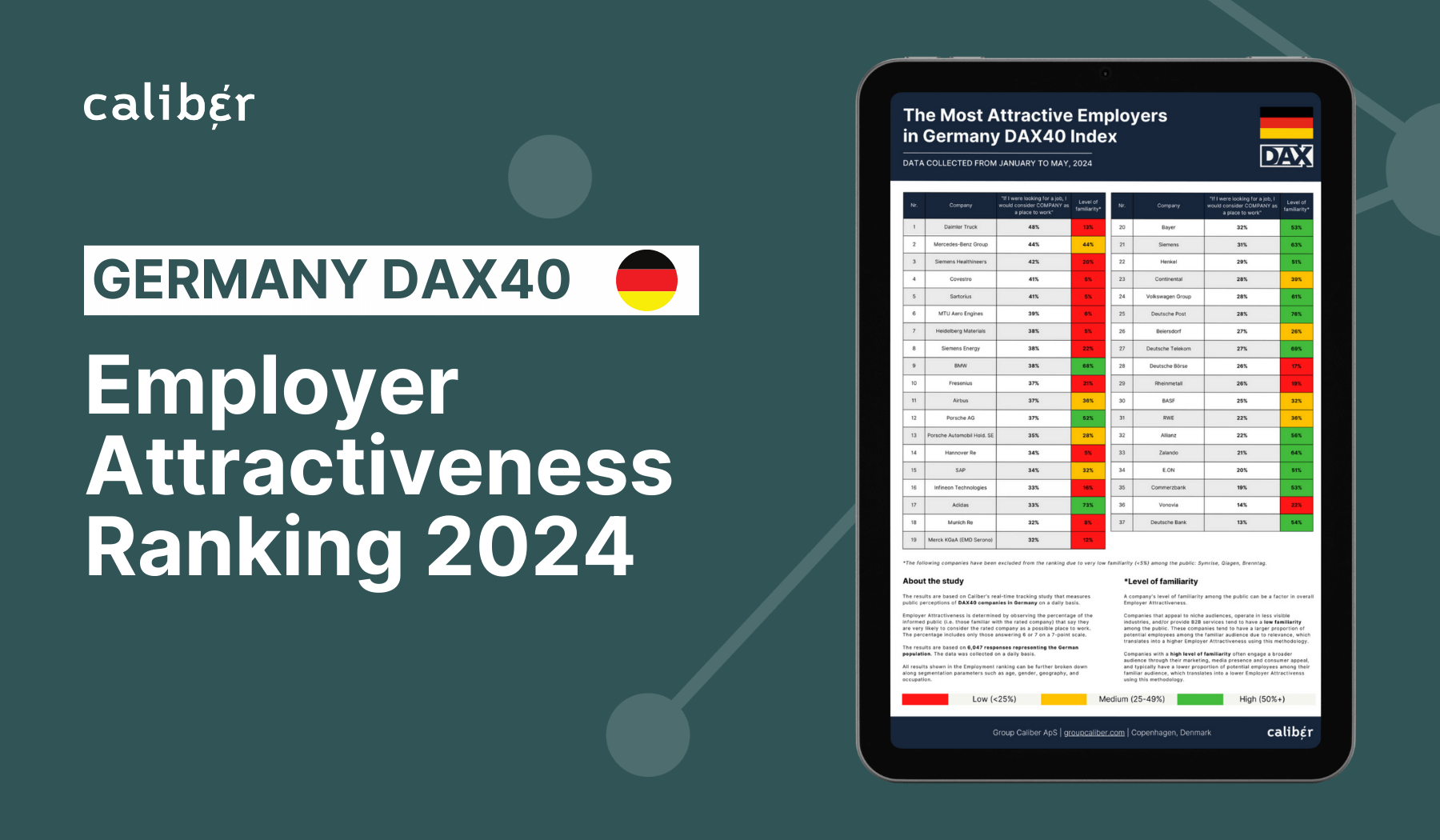
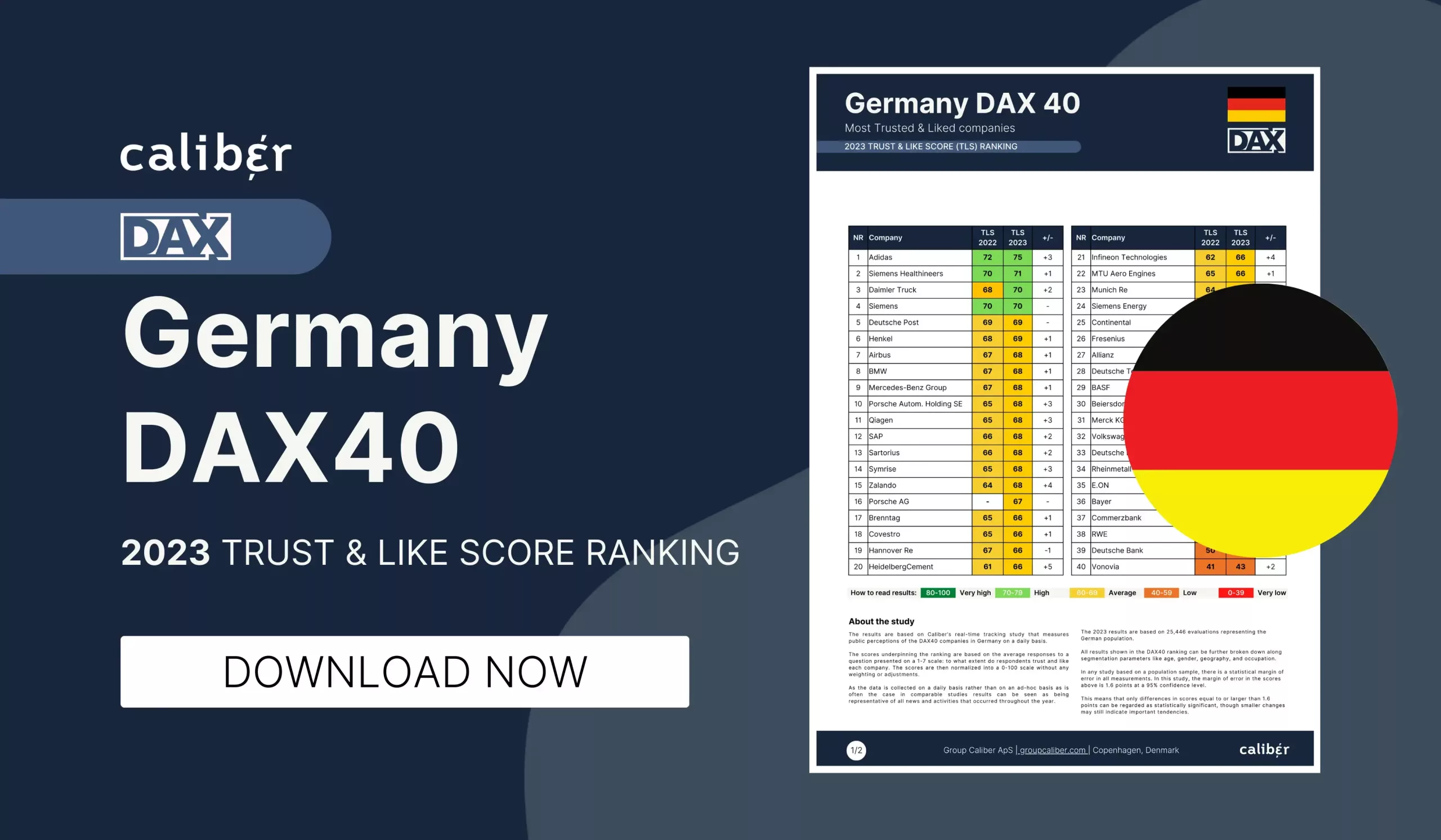


© 2024 Group Caliber | All Rights Reserved | VAT: DK39314320